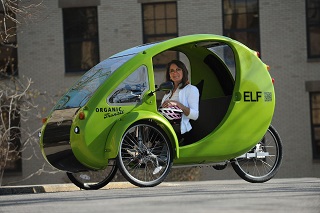The Future of Transportation Needs To Contemplate Parking in Congested Areas

I have a contrarian viewpoint here (not that it’s my first), in that I think the severity of the issue will lessen over time as:
• “Smart-cities” kicks in, and parking meters notify drivers when and where a space appears
• Small, urban commuter cars, as well as scooters and e-bikes continue to expand their presence
• More cities do the London thing, and make it unattractive to bring a car into the urban region, regardless of the availability of parking. When I drive to San Francisco, I park at the nearest terminus of the BART (public transportation system) and take the subway in. I save time (the whole process is usually faster than dealing with the traffic and the time required to find a parking garage), I save money (I pay $3/day, versus $41 on average downtown), and I am far more relaxed than I otherwise would have been (at least for me, having a car in a major city is an incredibly stressful experience).
Overall, I really can’t imagine how parking in congested areas will get any worse.

Craig, it seems that our perspectives are shadowed by our experience. This area has a bit of an older history than the West coast. The driveways were built at a time when a model T would have been a typical vehicle. In nearby communities it would have been a horse drawn carriage. Even I can recall a time when half the potential spaces on the street were vacant. Now where people mostly used public transportation every private house has has an average of 2 to 4 vehicles associated with it. Parking is a serious issue here and progressively getting worse.
House renovations are adding more units to an existing footprint, with even less off street parking and more vehicles per unit. Sure over time there may be changes with smaller vehicles and perhaps car sharing, but I expect this to be a slow process with a crisis ahead. At least in this area around NYC.
This is where autonomous taxis can make a huge difference. In a future city where you can summon an autonomous vehicle by phone app, and where a pool of 100 such vehicles can do the job now done by 1000 vehicles, parking problems will ease considerably.
But why will this bring about such a dramatic reduction in vehicles?
Most people in large cities dislike driving in such an environment, and if large enough numbers of autonomous cabs were available at low cost (no driver to pay) would probably give up on owning and running a car of their own. Such vehicles would be available for hire almost 24/7 so would do many more journeys each than a private car, hence a very substantial rediction in vehicles needed to meet a citys mobility needs, with even these vehicles parked up far less frequently – less real estate would need to be occupied by parking spaces.
Sorry for being so obtuse. That makes perfect sense. Thanks.